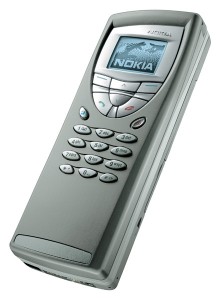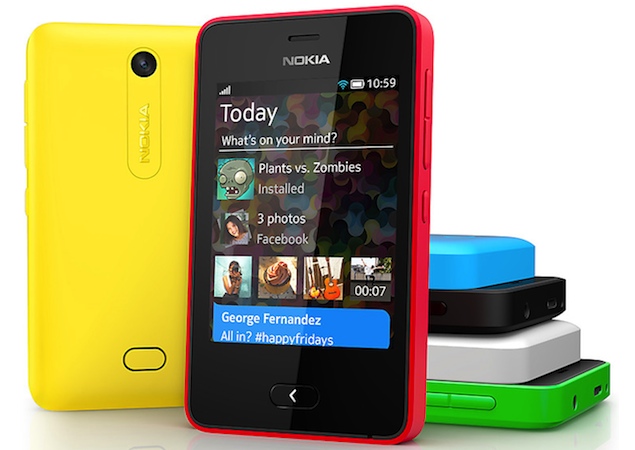What does Microsoft acquiring Nokia mean for the African Mobile Market?
I remember on university graduation, my father bought me a Nokia 9210i (Communicator) it was a timely upgrade from the Psion 3C I had bought from my friend in England which got me very fascinated with the future of mobile computing. At the time I was in the leading edge of mobile application development (I began programming on Symbian in 1997 aged 16 years old). I wrote a Horoscope program on the Symbian Operating System which I then ported onto the communicator- these were the days before App stores so I only used the app to impress girls that I could foresee their future with me by rigging the app’s horoscope outcome ;).
Over 10 years later, Symbian is now gone, I don’t think I will be developing apps for Nokia phones because I just don’t see the market yet. Microsoft has come full circle with their recent acquisition of Nokia cementing the future of Windows Mobile.
Since I moved to Africa over a year ago, I downgraded from iPhone (that was stolen) to the dual simcard Tecno N3 and then recently Tecno Phantom A+ both running Android. The battery life is great and was shocked to discover a power bank and torch in one as a free accessory which I have used more than any other phone accessory in Africa not surprisingly. Some people may even begin to call me a Tecno “fanboy”- I am a fan of Tecno and many other manufacturers bringing smartphones to the masses at every increasing lower cost and variety. A Tecno N3S (single sim) sells at about $50 now in Nairobi.
Developer economics recently made a profound statement that the biggest competitor Android maker Samsung has is not Apple, but the 100s of emerging niche Android phone makers out there targeting the emerging market. Chinese phone maker Xiaomi which is valued at $10B (more than the almost $8B purchase price Microsoft paid for Nokia) recently courted a Google mobile exec increasingly shows that the value of smartphones has shifted from the high end premium segment to the low end where the market is: places like China and Africa on their next upgrade cycle. Tecno is set to sell 40M phones in Africa this year, with their mix rapidly shifting from feature phones to smarphones where they will serve as Samsung’s main competitor. I now see Samsung and Tecno demo stalls right next to each other in Nairobi supermarkets.
- Samsung’s biggest competitor is emerging Android OEMs, not Apple
So where does this leave the Microsoft/Nokia Lumia and Asha line? Is there room for them to compete especially as they join forces? I believe they are now left a perilous position sandwiched between Samsung/Apple on the high end and Tecno on the low end. Tecno is 100% focused on Africa and even has an assembly plant in Ethiopia– they have the double advantage of being closer to their customers with the low cost Chinese manufacturing know-how. Tecno have shown their ability to innovate by bundling in torches in their higher end phones- showing they understand Africa more to even play in a sector where NGOs and social enterprises might venture in helping charging mobile phones- I should take my torch/power bank to rural areas and start charging $0.10 per charge… I might just recoup the $220 cost of the Phantom A+ and I look like I have a Samsung S3/4 for a third the price.
What we can certainly expect with the Microsoft/Nokia deal is even more competition and innovation leading to even cheaper smartphones (or “smart” feature phones)- the lines will begin to blur where the cost of an entry level smartphone will be almost the same price as a jacked up feature phone. Nokia had very high mindshare in Africa, after all they are probably single handedly involved in bringing mobile connectivity to the entire continent in the last decade.
However what you can do on a phone has evolved with Internet connectivity and as the hardware becomes commoditized- the focus will shift to content & applications. This is why we see all the players racing to Africa to secure partnerships with hubs and push their developer platforms. Android leads developer mindshare in Africa and its probably not because Tecno needs to sponsor app competitions. Messaging apps like Whatsapp will be available across all devices, and I currently believe is one of the biggest value for a feature phone user to upgrade to a smartphone in Africa. This will further hurt the Blackberry BBM advantage, however mobile operators still have a chance to earn higher revenue- they have even more incentive to abandon feature phones and push smartphones since getting more Africans using smartphones means more data usage even if it means SMS revenue loss to messaging apps such as Whatsapp. Microsoft and Nokia should allocate a generous marketing budget to Africa and perhaps we will see this being pushed via the 4Africa initiative. But they need to do more to compete against android players beyond marketing and phones such as the Asha 501. The right mobile operators pushing their phones might be a good first step, courting developers by providing the best monetization options for African developers to build a business from an app could be another. I might just rebuild my horoscope app if I can get paid.



